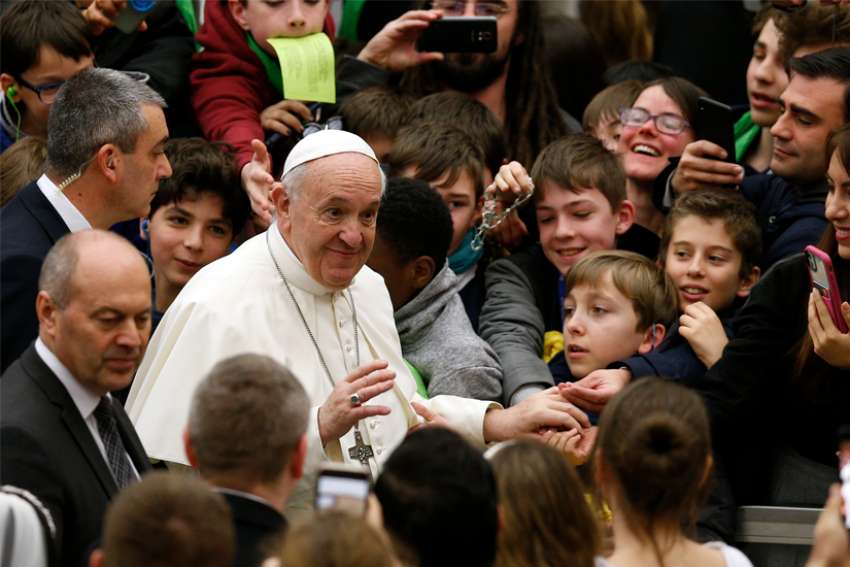The rise and fall of powerful governments and kingdoms throughout history are a lesson that no matter what wealth, power and comfort one has, "the wealth of this world disappears," the pope said Feb. 5 during his weekly general audience.
"Our elders would teach us that our burial shroud doesn't have pockets. It's true. I've never seen a moving van behind a funeral procession. Nobody can take anything with them. Those riches remain here," he said.
Continuing a series of talks on the Eight Beatitudes, the pope reflected on Jesus' "paradoxical proclamation, 'Blessed are the poor in spirit, for theirs is the kingdom of heaven.'"
The spiritual poverty Jesus speaks about, the pope explained, refers to "those who are and feel poor, who are beggars in the depths of their being."
"How many times have we been told otherwise! 'You have to be something; you have to be somebody; you have to make a name for yourself,'" he said. "This is what gives rise to loneliness and unhappiness. If I must be 'someone,' I am in competition with others and I live in obsessive concern for my ego."
Often, he added, people don't accept the truth of that beatitude because it impedes them from achieving fame and fortune, and no matter how hard they try, they always "remain radically incomplete and vulnerable."
"There is no makeup that can cover this vulnerability. Every one of us is vulnerable within," the pope said.
Pride, he continued, also can impede a person from being humble or admitting a mistake and asking for forgiveness.
A "proud person can't do it, they can't say 'sorry,' they are always right. They are not poor," the pope said.
"Why is it difficult to ask forgiveness?" he asked. "Because it humiliates our hypocritical image. And yet, to live trying to hide one's shortcomings is exhausting and distressing."
Pope Francis said that in the first beatitude, Jesus teaches that being poor "is an occasion of grace," and he shows "us the way out of this fatigue."
"We are given the right to be poor in spirit, because this is the way of the kingdom of God," he said.
True power, the pope said, doesn't come from accumulating wealth, fame or status but rather from following the example of Christ, who gave his life for all men and women.
"This is true power: the power of brotherhood, the power of charity, the power of love, the power of humility," Pope Francis said. "This is what Christ did; in this lies true freedom. The one who has the power of humility, of service, of brotherhood is free. At the service of this freedom lies the poverty praised by the beatitudes."


